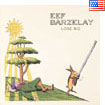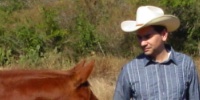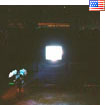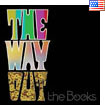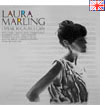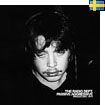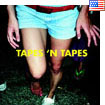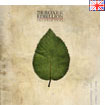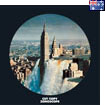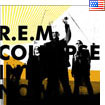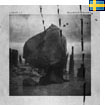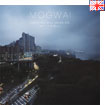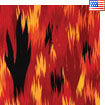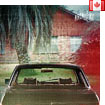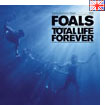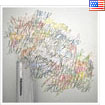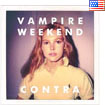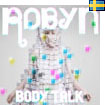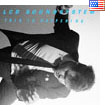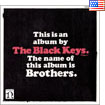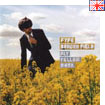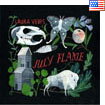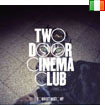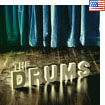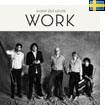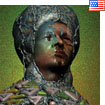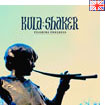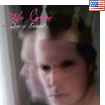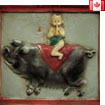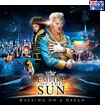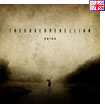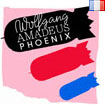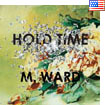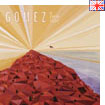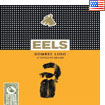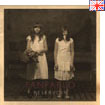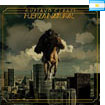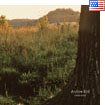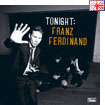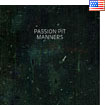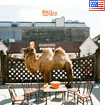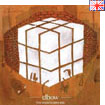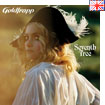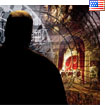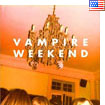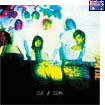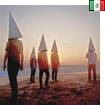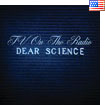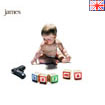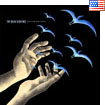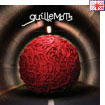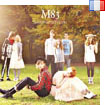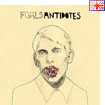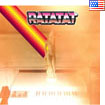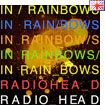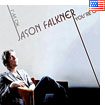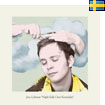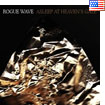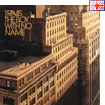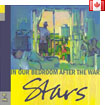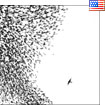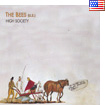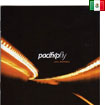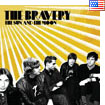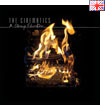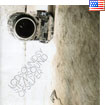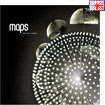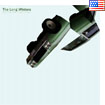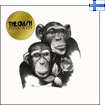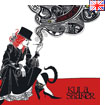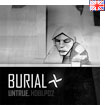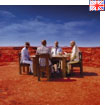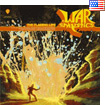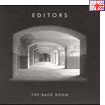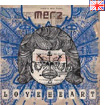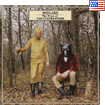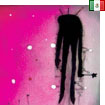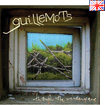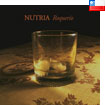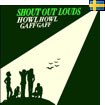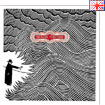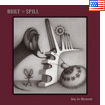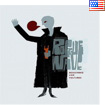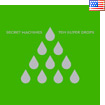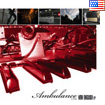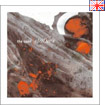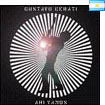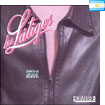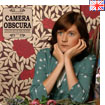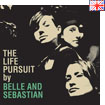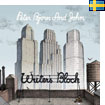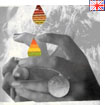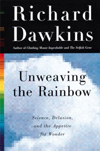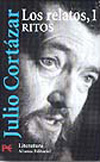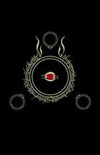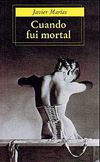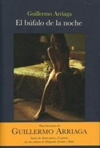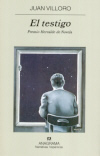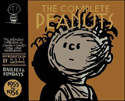Sunday, June 22, 2008
Album Commentary: Eef Barzelay - Lose Big
| Eef Barzelay Lose Big | |||
OK, desde hace alrededor de un mes, no he podido dejar de escuchar Lose Big de Eef Barzelay. Ya he explicado un poco acerca de cómo y por qué comencé a escucharlo en mi nota del 2 de junio. No me siento muy cualificado para escribir acerca de él porque sé que tiene al menos 5 discos de larga duración grabados con/como Clem Snide que nunca he escuchado--lo cual me parece afortunado, porque cuando finalmente me canse de este disco y de Bitter Honey, su debut en solitario, tendré todo un catálogo para explorar y disfrutar--así que me limitaré a tratar de explicar por qué me gusta tanto este disco. Mientras que en Bitter Honey eran básicamente él y una guitarra acústica--posiblemente para acentuar el hecho de que era un disco de solista--Lose Big es en definitiva un disco de "banda", y los pedales de efectos se usan no solamente en las guitarras sino también en el bajo. Temáticamente, no puedo decir mucho acerca de cómo se compara con sus otros discos, pero está claro que tiene un ojo agudamente sintonizado a las ocurrencias del mundo y un afilado ingenio para retransmitir sus impresiones; parece descorazonado con lo que ve, pero se vale de esperanza y humor para afirmar que las cosas pueden ser mejores. El mejor ejemplo de esto quizás sea la línea con la que abre "Make Another Tree": "Bendíceme, Señor, pues sólo persigo lo que me prometiste / Así que rómpeme, Señor, y con las piezas haz un nuevo árbol." "Apocalyptic Friend" ofrece consuelo a un amigo con inclinaciones fatalísticas, mientras que "Numerologist" parte de plataformas esotéricas para demandar al final, "¿Acaso puedes poner un precio al haberte ayudado a no ser un extraño para ti mismo?" En "The Girls Don't Care", comparte libremente con otros aspirantes a estrellas de rock una lista de clichés a evitar si quieren hacerlo en grande. Me gusta el final de esta canción porque él y su banda parecen comenzar a una alegre improvisación, pero la corta pronto diciendo "All right, all right..." ("Está bien, está bien ya...") antes de que la cosa se ponga muy festiva, casi como si dijera, "No nos dejemos llevar; debemos permanecer sombríos para lidiar con este mundo malaventurado." Eef podrá no estar agraciado con la mejor voz del mundo, pero se puede percibir que se hace un esfuerzo para entregar sus líneas, un esfuerzo que es difícil no apreciar. | OK, so for about a month now, I haven't been able to stop listening to Eef Barzelay's Lose Big. I've already explained a bit of how and why I started to listen to him in my June 2 post. I feel a little unqualified to write about him because I know he has at least 5 full albums recorded as/with Clem Snide that I've never listened to--which is all the better for me, because when I finally get tired of this album and of Bitter Honey, his solo debut, I'll have a whole back catalog to discover and enjoy--so I'll just try to express why I like this album so much. While Bitter Honey was basically him and an acoustic guitar--possibly to accentuate the fact that it was a "solo" record--Lose Big is definitely a "band" record, and effects pedals are used not only on guitars but also the bass. Thematically, I can't say a lot about how it compares to his previous records, but he's definitely got a keen eye tuned to our world and a sharp wit to retransmit his impressions; he seems heartbroken by what he sees, but draws on hope and humor to claim he believes things can get better. This is probably best exemplified by the opening lines of "Make Another Tree": "Bless me Lord, I'm only after what you promised me / So break me, Lord, and with the pieces make another tree." "Apocalyptic Friend" offers comfort to a friend with fatalistic proclivities, while "Numerologist" jumps off esoteric touchstones to demand at the end, "Can you even put a price on how I've helped you to not be a stranger to yourself?" On "The Girls Don't Care", he freely shares with aspiring rock stars a list of clichés to avoid early in their careers if they want to make it big. I like the ending of this song because he and his band seem to start breaking into a happy improvised jam, but he cuts it short by letting out an "All right, all right..." before things get too jolly, almost as if he were saying, "Let's not get carried away now; we must remain somber to deal with this unpleasant world." Eef may not be graced with the best voice in the world, but one can sense an effort is being made to deliver the lines, an effort that is hard not to appreciate. | |||
| Cuando escribí acerca de Eef por primera vez hace un par de semanas o así, compartía una larga nota con un libro de Brenda Ueland que acababa de leer. Aunque no había una conexión directa entre ellos (más allá de que más o menos los había "descubierto" al mismo tiempo), por alguna razón sentía que debía hablar de ambos en la nota. Así que fue una sorpresa placentera cuando hace poco leí una entrevista con Eef donde ejemplifica algunas de las cosas que la Señora Ueland expone en su libro, como por ejemplo el hecho de que el arte rara vez surge de algo en lo que se trabaja por demasiado tiempo, sino que suele nacer de breves destellos de creatividad que aparecen casi espontáneamente cuando se dan las circunstancias correctas, convirtiéndonos en casi meros instrumentos de esas revelaciones. Leer que Lose Big surgió de un arranque como ese fue algo gratificante. (Un poco de historia: Hungry Bird es un disco que se supone que sería el último de Clem Snide, en el que Eef trabajó alrededor de dos años y aún no siente que esté listo para salir.) (El siguiente párrafo es una traducción mía de la entrevista original en inglés.) | When I first wrote about Eef a couple of weeks ago or so, he shared a long post with the book written by Brenda Ueland I had just read. Although there wasn't a direct connection between them (other than the fact that I kind of "discovered" them at the same time), I somehow felt like I had to talk about both of them in that note. So I was pleasanlty surprised when a few days ago I read an interview with Eef where he exemplifies a few of the things Ms. Ueland writes about in her book, like how art seldomly emerges from working on something for too long, but rather, is born from brief bursts that emerge almost spontaneausly when the appropriate conditions align, making us almost mere instruments of those revelations. To read that Lose Big emerged from such a burst felt somewhat gratifying. (A little background: Hungry Bird is an album that was slated to be Clem Snide's final release, on which Eef worked for about two years and still does not feel is ready for release.) | |||
| "Y bueno, Lose Big ocurrió rápidamente, en un momento en el que me di cuenta de que [Clem Snide] había llegado a su fin. Tuve una epifanía: había estado tan metido en Hungry Bird por tanto tiempo - como por dos años - hasta que la burbuja estalló, lo cual fue muy liberador. Así que escribí casi todas las canciones de Lose Big, literalmente, en alrededor de cuatro días. Tuve esta racha de cuatro o cinco días en los que escribí una tras otra - fue muy intenso. Sentía más como si estuviera canalizando personas que pudieran haber sido yo en un universo paralelo o una vida anterior. Para mí, Lose Big es todo acerca de mí, pero en el cuerpo de otra persona, viviendo otra vida - mi propia vida se sentía como si se hubiera roto en muchos pedazos, y estaba viendo todas esas piezas. Todo ocurrió muy rápido y, sorprendentemente, justo cuando estaba teniendo esta explosión creativa, tuve la oportunidad de entrar al estudio con personas de Ben Folds, al estudio de Ben - tiene un gran estudio en Nashville que me deja usar gratis. Así que fui con Jared [Reynolds], el bajista de Ben, y Joe Costa e hicimos este disco en alrededor de una semana, y salió bueno. Mi cabeza aún está dando vueltas, y todo esto ocurrió hace casi dos años. No sé cómo fue que todo ocurrió, en realidad, pero todo se resolvió de este modo gloriosamente veloz." | "Anyhow, Lose Big happened very quickly, right at a certain moment when I kind of realized that [Clem Snide] was over. I had an epiphany: I’d been so deep into Hungry Bird for so long - for like two years - then the bubble sort of popped, which was really liberating. So I wrote most of the songs on Lose Big, literally, in like four days. I had this four or five day stretch where I wrote one after another - it was really intense. I felt more like I was channeling people who might’ve been me in some other parallel universe or a past life. For me, Lose Big is all me, but in another person’s body, living another life - my own life felt like it’d broken into a lot of pieces, and I was looking at all the pieces. It all happened so quickly and then, amazingly enough, right at the moment that I was having this burst of creativity I had the opportunity to go into the studio with some of Ben Folds’ people, into Ben’s studio - he has this great studio in Nashville that he let me use for free. So I went in with Jared [Reynolds], the bass player for Ben, and Joe Costa and we made this album in like a week, and it came out good. My head is still spinning, and this all happened like two years ago practically. I don’t know how it all happened, really, but it came together in this glorious kind of quick way." | |||
| La edición americana de este disco incluye "I Love the Unknown", una canción hecha disponible al menos dos veces antes (como una canción de Clem Snide y en la banda sonora de Rocket Science.) La edición de iTunes incluye un tema adicional llamado "Born a Man" ("Y aquellos que son los más temerosos, dicen que ser valiente es pecado".) Puedes escuchar "I Love the Unknown", así como la canción que abre el disco, "Could Be Worse", en mi nota del 2 de junio. | The US edition of the record includes "I Love the Unknown", a song released at least twice before (as a Clem Snide song and on the Rocket Science soundtrack.) The iTunes edition includes an additional bonus track called "Born a Man" ("And those who are the most afraid, say courage is a sin".) You can listen to "I Love the Unknown", as well as album opener "Could Be Worse", in my June 2 post. | |||
Labels: Album Commentary, American indie, CD Review, Clem Snide, Eef Barzelay, Music
Comments:
How amazing it is to realize you share a favourite book author with one of your favorite music artists?
Then again, like-minded individuals might share many other things, too, no?
Then again, like-minded individuals might share many other things, too, no?
Vaya, me paso por aquí esperando ponerme al día sobre tu verano, y por lo visto tú también te has permitido unas blogger-vacaciones. :)
Todo bien por SF?
Abrazos!
Post a Comment
Todo bien por SF?
Abrazos!
